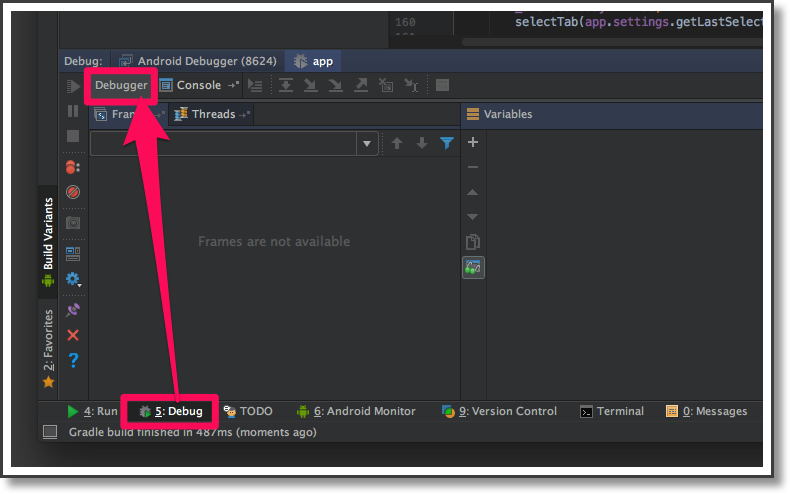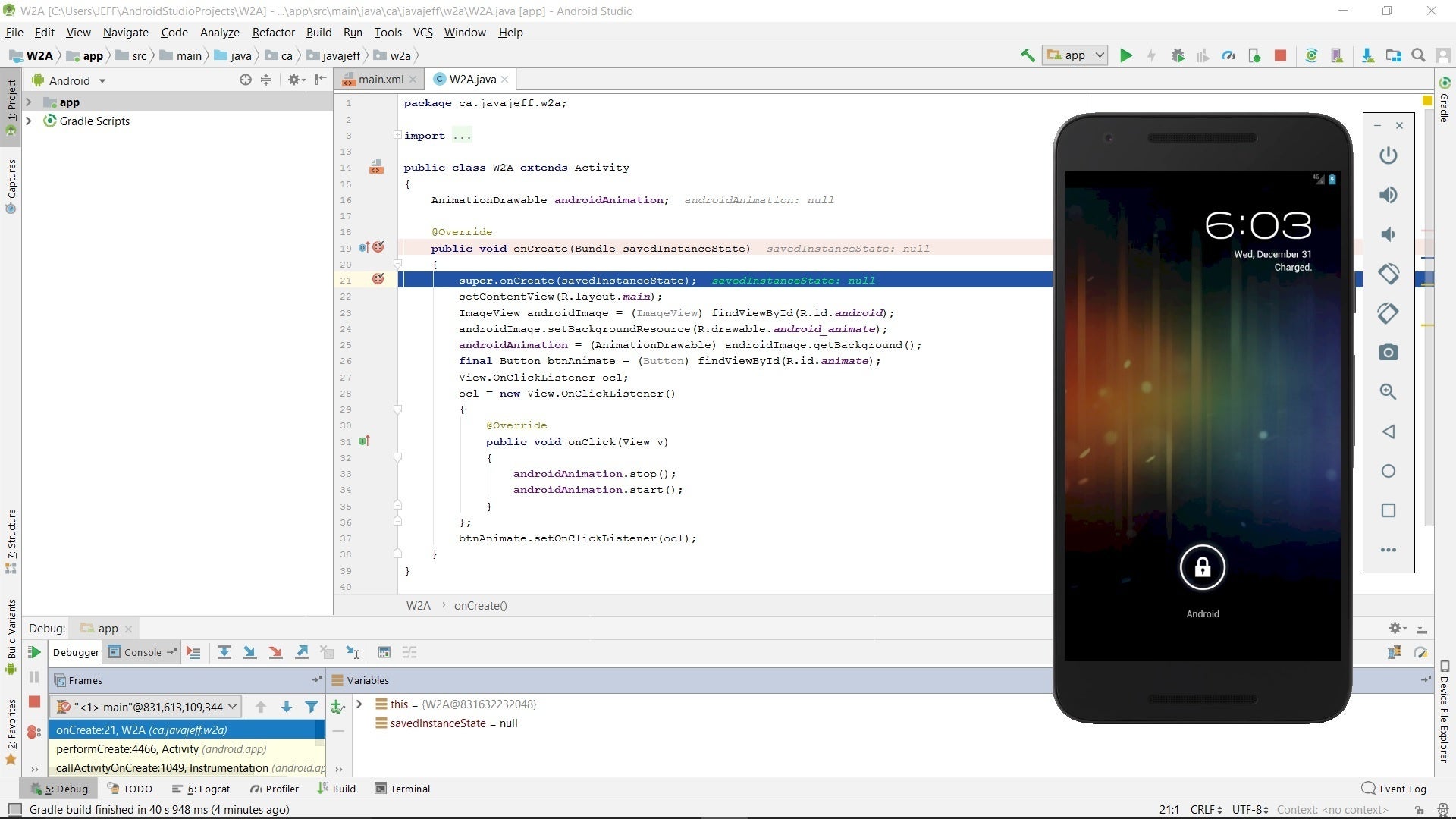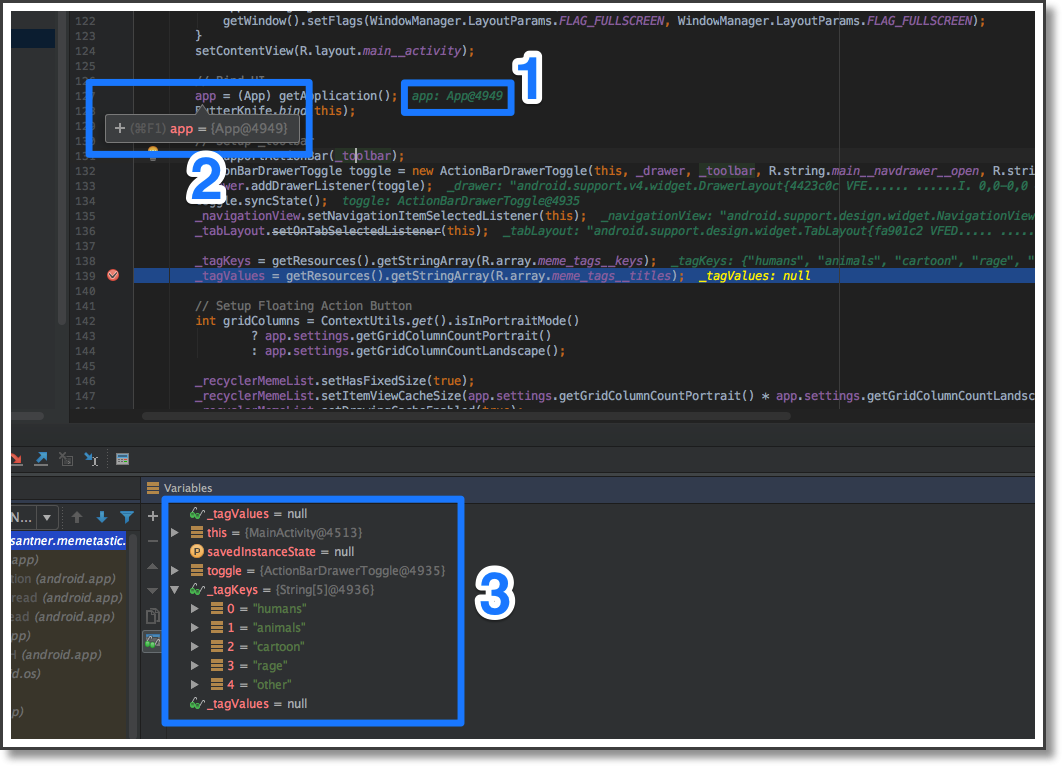

For example, in the context of Figure 1, you might specify SystemClock | AlarmManager (i.e., the message must contain either word). A check box that lets you use regular expressions in the search bar.A search bar where the only messages that appear are those containing the text you type in this control.Assert: show issues that the developer expects should never happen.Error: show issues that have caused errors - thrown exceptions, as well as the Assert message level.Warn: show possible issues that are not yet errors, as well as the message levels lower in the drop-down list.Info: show expected log messages for regular usage, as well as the message levels lower in the drop-down list.Debug: show debug log messages that are useful during development only, as well as the message levels lower in the drop-down list.A drop-down list identifying installed APK packages on the selected device.A drop-down list identifying connected devices and emulators.The Logcat window is divided into a horizontal row of drop-down lists and other controls followed by a message area. The Logcat window reveals a list of date-and-time-stamped system messages (click to enlarge) Logcat is so useful it's been integrated directly into Android Studio, where you can access it from the View menu or the tool window bar. Messages include stack traces for when the device throws an error, and log messages that you've purposefully embedded with the class.


Logcat is a command-line tool (integrated into Android Debug Bridge - ADB) that dumps a log of system messages that can help you find and fix problems in your code.


 0 kommentar(er)
0 kommentar(er)
